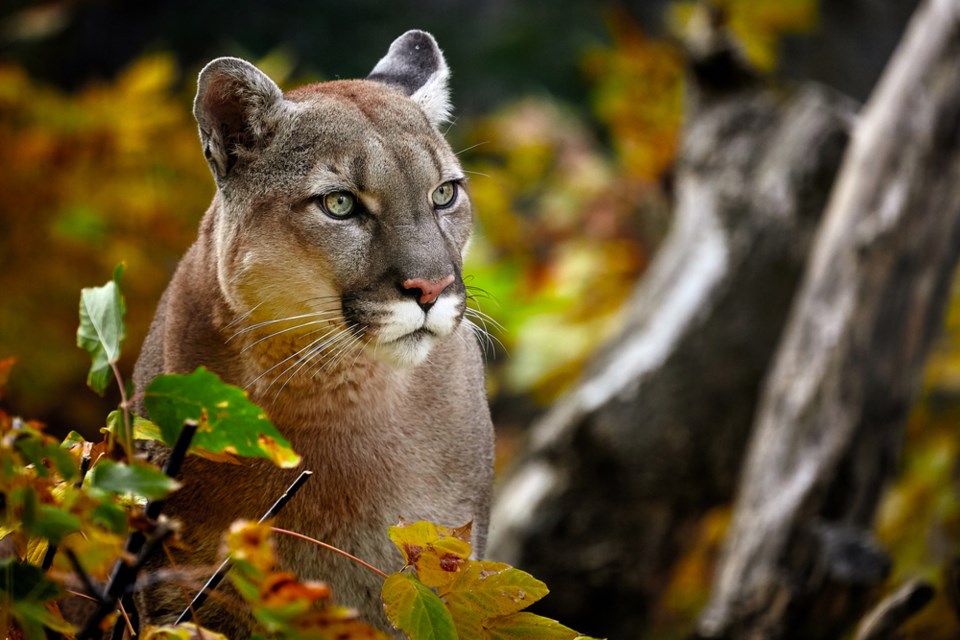Residents living across southwest Coquitlam are being put on alert after a series of cougar sightings were recently reported to the city.
Environment manager Caresse Selk confirms seven big cats were seen across four different neighbourhoods since Dec. 28, 2022.
She said the calls came from local residents and the BC Conservation Officer Service (BCCOS), noting the majority of the cougars were seen in the Chineside area north of Mundy Park.
Most of the sightings were via security camera footage, Selk explained to the Tri-City News, involving a single cat walking around at night through backyards.
The good news: it appears most cougars have not been looking for unsecured garbage and there have been no human or pet conflict reports.
"It is not unusual for cougars to be in urban greenway corridors throughout the Lower Mainland and Coquitlam especially in the winter months when snowpack in the mountains cause cougars to head to lower elevations to find prey such as deer," said Selk.
"If you spot a cougar near your home, it is most likely passing through the neighbourhood and will move on. If you encounter a cougar, remain calm. Do not scream or run away. Speak in a loud, firm voice, pick up small children and pets, and back away slowly."
Other neighbourhoods that have seen cougars include Oakdale, Harbour Chines and Ranch Park — all of which, plus Chineside, are connected west to east by Como Lake Avenue.
In addition to cougars, the city said bears are also being reported, signalling that most urban wildlife are starting to emerge from their winter dens.
According to Selk, bears were recently seen around Dartmoor and Eagle Ridge, which has now prompted environment officials to remind homeowners to secure all animal attractants around their property.
She said staff are patrolling the community, with a focus on the recently reported areas, looking for unsecured attractants such as garbage, as well as green carts put out too early for collection.
"Guided by massive appetites and a keen sense of smell, bears find unsecured garbage carts, dumpsters and other food sources near homes and businesses to be an irresistible draw," said Selk in a news release on Thursday (Feb. 3).
"Property owners who allow wildlife to access attractants — even unintentionally — may receive a $500 fine."
Coquitlam residents are strongly encouraged, when venturing outside to forested areas, to supervise small children, keep pets indoors and dogs leashed at all times.
Tips also include:
- Feed pets indoors and clean the ground under bird feeders from any spilled seed
- This can attract smaller animals, such as raccoons and squirrels, which are prey to cougars
- Avoid hiking or walking alone
- This is especially between dusk and dawn when cougars are most active
- Be aware of fresh signs, such as tracks or scat
- If you find dead wildlife, slowly leave the area as this may indicate a cougar food cache
- Continue to report all cougar sightings directly to the BCCOS
- Phone: 1-877-952-7277
As well, there are three basic "bear smart" steps local residents and businesses are encouraged to follow when it comes to securing possible bear attractants:
- Place carts at the curb after 5:30 a.m. on collection day (not the night before)
- Place garbage, food waste and recycling somewhere inaccessible to wildlife (locked garage or shed)
- Freeze smelly garbage and food waste to keep carts odour-free on collection day (regularly clean the bins too)
For more information, you can visit the wildlife management page of the City of Coquitlam's website.





